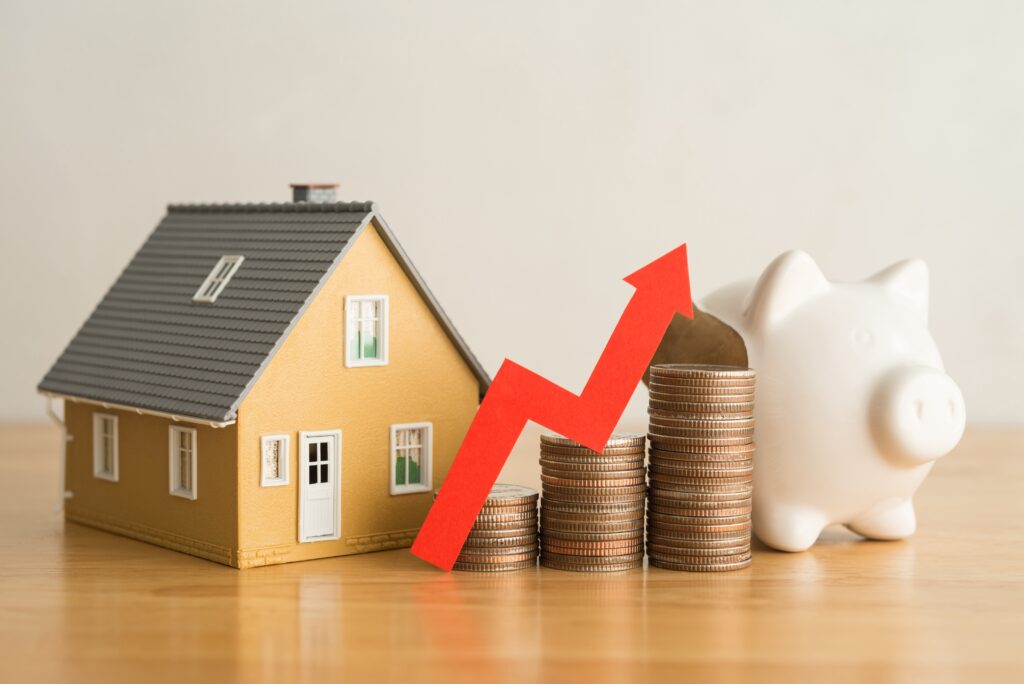A Homeowner’s Dream: The Urge to Upgrade
For most homeowners, the desire to make improvements to their property is both a passion and a strategic move. Whether it’s the vision of a modern kitchen, an expanded living space, or a garden transformation, home improvements not only cater to personal tastes but can also significantly boost property value. However, the financial aspect of these upgrades is a pressing concern. That’s where understanding the difference between secured and unsecured loans becomes essential.
Secured Loans: The Basics and Benefits for Home Improvements
A secured loan, as the name suggests, requires the borrower to offer some form of collateral. In the context of home improvements, this is typically the equity in the house itself. This means if you default on the loan, the lender has the right to take possession of the collateral.
For homeowners looking to undertake major renovation projects, secured loans can be an attractive option. They generally offer larger loan amounts due to the collateral’s presence, often come with lower interest rates compared to their unsecured counterparts, and might provide longer repayment terms. Given the potential for a significant increase in property value post-renovation, many homeowners find this type of loan fitting for their needs.
Unsecured Loans: Flexibility with Freedom
In contrast to secured loans, unsecured loans don’t require any collateral. Instead, they are offered based on the borrower’s creditworthiness. This type of loan is particularly appealing to those who might not have much equity in their homes or those wary of tying their property to a loan.
While unsecured loans may have higher interest rates due to the increased risk for the lender, they offer flexibility. They are generally quicker to process, given the lack of need to evaluate collateral, and borrowers don’t run the risk of losing their home if they default. For smaller home improvement projects or for homeowners keen on keeping their property unencumbered, unsecured loans present a viable route.
Home Improvements ROI: The Interplay with Loan Types
One of the primary considerations when opting for a home improvement loan is the potential return on investment (ROI). Some projects, like kitchen renovations or adding a bathroom, can offer substantial ROI, making the prospect of taking out a larger secured loan more palatable. Conversely, for projects that are more about personal satisfaction rather than value addition, an unsecured loan might be more fitting.
Making the Right Choice: Considerations Beyond the Financials
While interest rates, loan amounts, and potential ROI are crucial, homeowners must also consider other factors. The duration of the loan, the impact on monthly budgets, and potential changes in circumstances over the loan term should all influence the final decision. Additionally, the emotional weight of putting one’s home as collateral is not to be underestimated.
The Timeline Factor: Short-term vs. Long-term Projects
One of the primary determinants in choosing between secured and unsecured loans is the timeline of your home improvement project. For homeowners considering long-term renovations like a full home makeover or adding extensions, secured loans may provide the necessary funds and extended repayment timelines. On the other hand, if your project has a shorter timeline, such as redecorating a room or landscaping the garden, an unsecured loan’s speedier processing might be more beneficial.
Understanding the Application Process
Both secured and unsecured loans come with their unique application processes. With secured loans, lenders often require a more in-depth evaluation. This could involve property assessments, equity evaluations, and detailed documentation. Unsecured loans, in contrast, typically focus on the borrower’s credit history, income, and financial stability. By familiarising yourself with these processes, homeowners can ensure they have all the necessary documents ready, reducing potential delays and hiccups.
Risks and Rewards: Weighing the Outcomes
It’s essential to approach home improvement loans with a clear understanding of potential risks and rewards. Secured loans, while often providing better rates and larger amounts, come with the inherent risk of losing one’s property in case of default. Unsecured loans, while not tied to assets, might result in higher interest costs over time. Homeowners must evaluate these aspects, weighing the benefits of their home improvements against the financial and emotional costs associated with each loan type.
Future Financing: Considering the Broader Picture
Lastly, homeowners must consider how their current loan decisions might impact future financing opportunities. Taking a secured loan might limit the ability to tap into home equity in the near future. Conversely, an unsecured loan might impact one’s credit utilisation ratio, potentially affecting future unsecured borrowing opportunities. It’s always advisable to think a few steps ahead, ensuring that today’s decisions align with long-term financial goals and aspirations.
A Home Reflecting Your Vision
Embarking on a home improvement journey is exhilarating. The blend of personal vision with the potential for increased property value is enticing. By understanding the nuances of secured and unsecured loans, homeowners can make informed decisions, ensuring their financial choices support their home dreams rather than hinder them. As with any financial undertaking, it’s crucial to seek expert advice, evaluate multiple options, and reflect on both current circumstances and future possibilities. With the right knowledge and preparation, the dream home is within reach.
Market Trends: Current Rates and Lender Appetite
The broader financial climate and market conditions can significantly influence a homeowner’s decision between secured and unsecured loans. During periods of economic stability and low-interest rates, unsecured loans may become more appealing due to their competitive rates. Conversely, in more volatile economic conditions, lenders might tighten their criteria for unsecured lending, making secured loans a more accessible option. Staying updated on market trends allows homeowners to time their borrowing effectively and make the most of prevailing conditions.
Refinancing: A Future Avenue?
Once you’ve taken out a loan for home improvements, it doesn’t necessarily mean you’re bound to its terms until it’s fully repaid. Refinancing is an avenue some homeowners explore, especially if market conditions change or if their financial situations improve. Secured loans, given their typical longer durations and larger amounts, often present more opportunities for refinancing than shorter-term unsecured loans. Being aware of this option can offer flexibility in future financial planning.
Impact on Credit Score: Beyond the Immediate Loan
It’s common knowledge that loans impact credit scores. However, the nuances of how different loans affect these scores vary. With secured loans, since they’re often larger and longer-term, consistent and timely repayments can have a favourable long-term effect on credit scores. Conversely, while unsecured loans might be smaller and shorter in term, any default or delay in repayments can quickly dent a credit score. Homeowners should consider the implications of their loan choice on their credit health, both in the short and long term.
Loan Insurance: An Additional Safety Net
Given the significant amounts often involved in home improvement loans, especially secured ones, loan insurance becomes a topic of discussion. Such insurance can provide peace of mind, ensuring that in unforeseen circumstances like job loss or health issues, repayments can continue seamlessly, preventing defaults. While adding an additional cost, loan insurance might be worth considering for those who prioritise financial security and peace of mind.
In essence, while the immediate requirements of a home improvement project might guide initial loan choices, it’s the broader, long-term considerations that often play a pivotal role in financial satisfaction. Homeowners, by equipping themselves with comprehensive knowledge and understanding of the broader financial landscape, can ensure their decisions resonate with both their home aspirations and their financial well-being. For more information about the loan options in Southport that Small Loans Limited offer, contact our team today.

